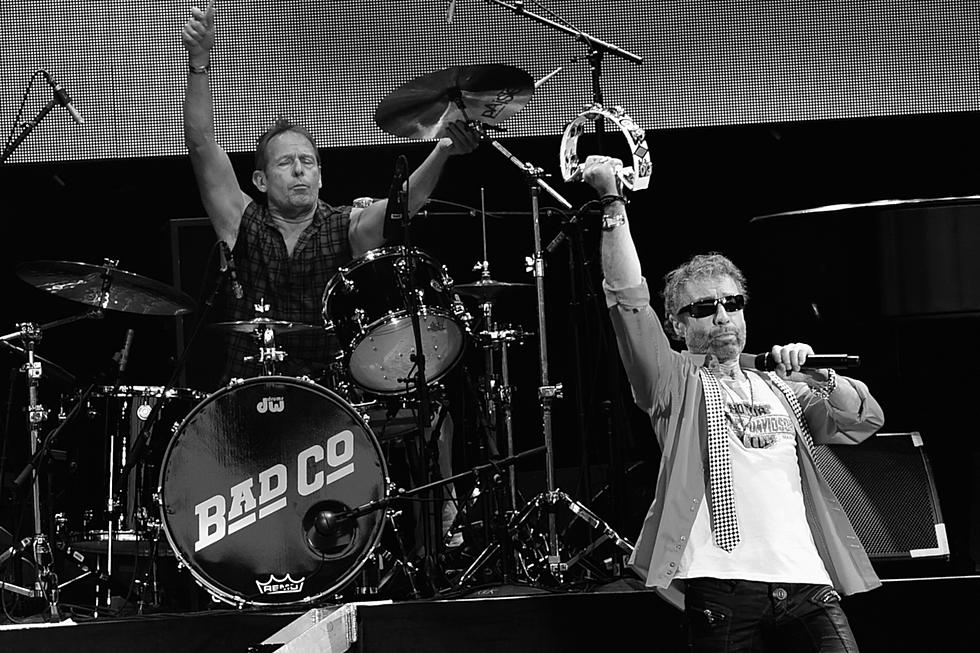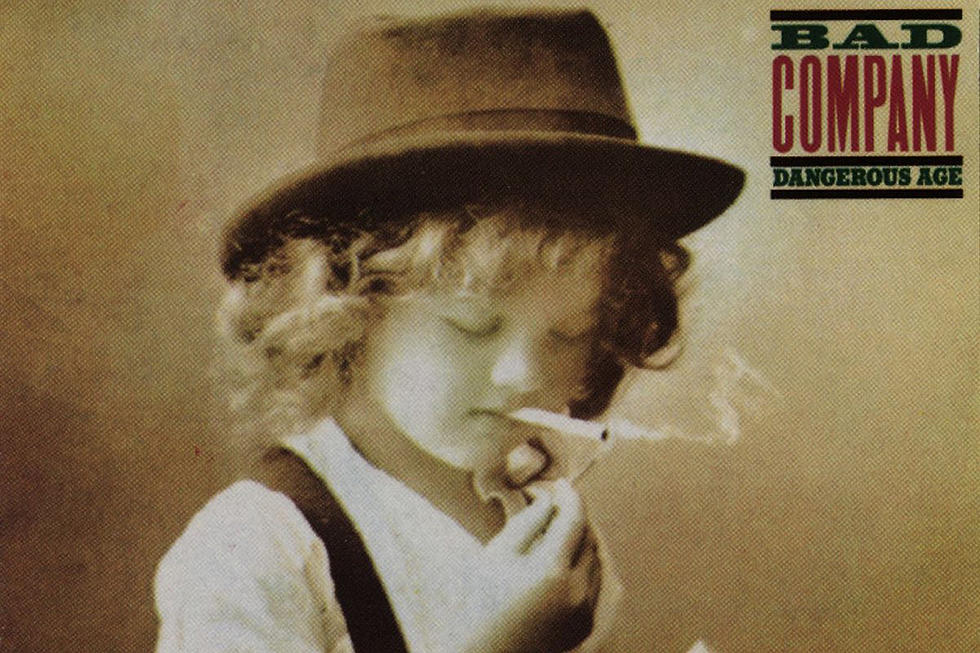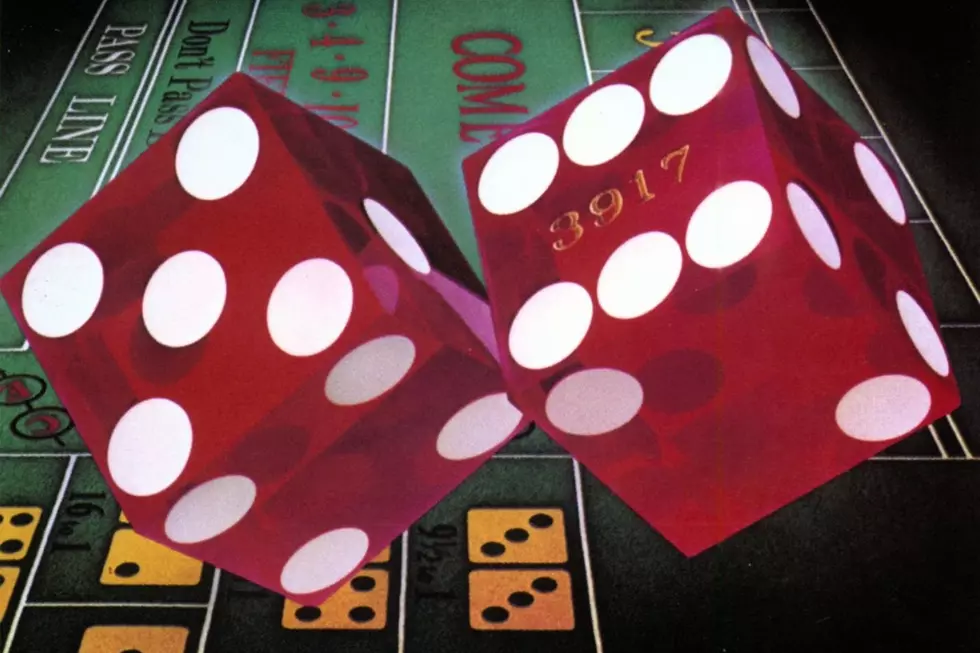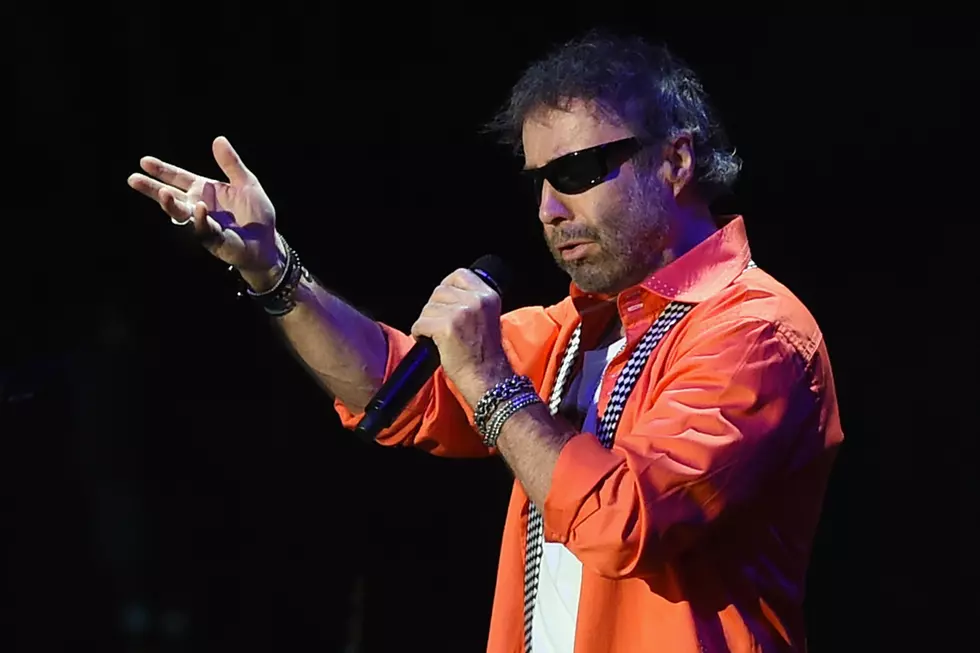
Bad Company’s Simon Kirke On His New Solo Album, John Bonham And The Future Of Bad Company
Bad Company drummer Simon Kirke has contributed more than a solid backbeat to the group's sound. In nearly 40 years with Bad Co., he's been involved on the back end, helping to co-write several key songs in the catalog, including the very track that inspired the band's name, "Bad Company."
He's stepping out on his own with his first full length solo album 'Filling the Void,' a versatile set of songs that finds the veteran drummer playing a variety of instruments, from drums to piano. Bandmate Mick Ralphs, Ted Nugent vocalist Derek St. Holmes and former 'Saturday Night Live' guitarist G.E. Smith gave Kirke a hand as he was fleshing out the material for the new record.
We spent some time recently with Simon, talking about 'Filling the Void' and we also took advantage of the opportunity to explore the rich history of Bad Company.
I'm here in Cleveland and although I didn't get a chance to see it, I know you played a solo show at the Hard Rock Cafe a few years ago.
Yeah, you know, it was my very first show ever and I was sh-- scared. That was a few years ago -- hopefully, I've become [better at that]. I'm doing quite a bit of Hard Rock and House of Blues shows now.
The title track of this new album chronicles a dark period for you personally. Lyrically, the song certainly details all of the things that you were faced with losing. You certainly had a lot of things coming at you, all of which pointed towards the idea that it was a good time to clean up.
Well yeah, addiction is rife, not only in our industry, but pretty much all over the world at the moment. I've been in and out of rehab for I guess the better part of 20 years. I've got eight years now. As part of my therapy, they allowed me to have a guitar, as long as I promised not to hang myself with the strings. I said "don't worry man, I've paid you so much money, I'm not going to do that." My therapist recommended as part of my therapy, to write songs about what I was going through. 'Filling the Void' is pretty much the first thing that came out of my mouth. "I'm sitting here again, tired of running, tired of coming home a drunken stranger."
And it was amazing how it all poured out. Look, I didn't want to make the CD all about addiction, but I wanted to include at least one song. Because 'Filling the Void,' the void being addiction, you can never fill it, it's like a bottomless pit. I've had people come up to me at the end of my shows saying that they got something out of it or they were going to pass along the message to their loved ones who were addicted, so I'm very, very pleased with it.
It was interesting to read the liner notes, all of the life themes that you had contributing to the song inspirations for this album. 'Message From the Lost,' came out of a period after 9/11 when you were a delivery driver for the Red Cross, how did that come about?
Well, even though I'm British, I've lived in New York for 15 years and then when 9/11 happened, I had been in the town for about six years, so I knew Manhattan, Brooklyn and the Bronx very well. The Red Cross were desperate for drivers to take fire crews and first aid crews from their hotels to the site. As you know, because 9/11 was the biggest ever Red Cross situation and those people had come from all over the country and they were in these hotels all over the city and didn't know how to get down to the [World] Trade Center.
So I used to ferry them and bring supplies back. I also took nurses to Fresh Kills, which is the site where all of the debris was kept on Staten Island and that was another trip in itself. And it was during that one time on Ground Zero, when they allowed the first relatives to come down.
They all came down the ramp and I guess there was about a hundred of them, all carrying flowers and bouquets for their loved ones. All of the days on the site were just very emotional moments and I went back home that night and wrote that song.
You've written songs both prior to this and with Bad Company over the years, where did the idea come about that it might be time to put down a whole album's worth of your own tunes?
Well, about a year ago...because you know, Bad Company, I'm not saying we're done, but we very rarely work together anymore. And I've had these songs percolating for years -- I've still got dozens more. So about a year ago I thought, you know what, I really, really want to do a solo album and do it properly. I wanted to do it with good musicians, the proper systems, do shows and put it out there.
So it was a cathartic exercise as well, just wanting them to be out and [for] people to hear them. I don't expect to make a fortune out of it, but I've got very positive feedback from people so far. I've also got a video out on Youtube, which is the last track on the album, 'One Day Closer to You,' and that was kind of interesting to do. It just felt like it was time and we'll see what happens.
Since I'm a little bit younger, my first Bad Company album was the 'Holy Water' album and that album closes out with your song '100 Miles,' which I really liked, so I was excited to hear what an entire album of Simon Kirke songs might sound like, based on that song.
[Laughs] '100 Miles,' yeah, that came out of nowhere, that was weird. That was the first song that I'd written by myself and it was kind of like a little folky thing. I only put it out to the guys in the band, not as a joke, but kind of a light-hearted [song] to counterbalance the heavy.
Because you know, we went through our hard rock stage with Brian Howe and I just put it out thinking 'we're going to kick this out of the ballpark.' And the producer said 'you know, that's the best song I've heard in this listening session, which really pissed off Brian Howe and Mick Ralphs. He said we'll put an accordion on it and a little bit of strings and it was nice, it turned out really cute, so I was pleased with it.
Listening to that album now, it really strikes me how produced it was. That was a very different era for the band – how much of an adjustment was it for you as a drummer, coming from the analog side of things and crossing over into a world of recording that clearly was becoming more digital?
It was a stretch, I'll be honest. Apart from the fact that we had a different singer and that's a whole 'nother story. The thumbnail sketch would be that Paul left the band and we wanted to carry on. Mick Jones from Foreigner had been grooming Brian Howe to replace Lou Gramm. So that didn't happen and he came on to us.
It was the first time that we actually used a producer, someone to actually sit down and be the fifth member of the band and say “I think we should try this, try that and do that.” And one of the things that he introduced was a click track and I didn't like it. I really did not like it. Because it was okay to keep beat – my timekeeping was pretty solid. But when it came time to do fills and little things outside of the beat, the click track really impeded me.
So I said “Listen, Terry – give me eight bars of the click and then turn it off” and that's what we did. It was kind of an uneasy alliance, working with samples and sounding things out. I mean, it worked – we got some good music out of it, but there were a couple of turkeys – that's rock and roll.
From the beginning, Bad Company produced their own albums, which seems a bit bold for a new band, even though all of you had made a name for yourselves individually. During the classic period with Paul Rodgers, was there ever any pressure to adhere to the traditional system and bring in a producer?
No. Honestly, there wasn't. We were with Peter Grant and Led Zeppelin on their label, Swan Song. Of course, Zeppelin marched to their own drum – they had engineers, very good ones – Ron Nevison and Chris Kimsey, they were good guys and they worked with us. I know Ron Nevison would have liked to have been thought of as a producer, but quite honestly, they couldn't have added that much to the tracks.
We were so hellbent on being a success. The songs were written by us, mainly Mick Ralphs and Paul Rodgers. We had it all down when we went into the studio. And to really have someone come in and meddle just wasn't going to happen. There's two ways of looking at it – either the guy is a meddler, or he contributes and it's a lonely job, being a producer.
I never felt that Bad Company needed a producer, until we lost the original lineup. I thought Terry Thomas, who produced 'Holy Water' and a couple of others, I thought he did a great job. But all of the sudden, it became less personal and a little bit more business like. A good producer is a catalyst.
He will suggest, try this, try that – that's the operative role of a producer – try. I've helped a few people along the way and I've always tried to maintain that, you know, just try that – if it doesn't work, it doesn't work, but let's see how it goes. A good producer is worth his weight in gold, but a bad one will just screw things up.
A bad one can tank the whole album, for sure.
Yeah, he can set member against member and suddenly we start taking sides. The best ever, one of the best ever, was George Martin, with the Beatles. He had a very good musical background, he could play excellent piano and he was a chameleon -- he could interact with all of them. That was one tough group to produce. He said he did it in a bullying way, but he bullied with charm.
He certainly had a heck of a group to mediate.
[Laughs] Lennon and McCartney! I know Lennon was a hard guy to get on with, but the ideas he came up with were wonderful.
You have some interesting perspective on John Bonham as a drummer, having shared the stage with him. Drummer to drummer, what's your take on Bonham?
He's a wonderful drummer. I mean, he had great feel, apart from his attack and he was a wonderful friend. You've only got to listen to his drum solo on 'Coda,' there's some really almost jazzy stuff. I think hands down, he's certainly one of the all-time great hard rock drummers. And he could do stuff with his right foot that some guys can't do with two feet. He kept great time, his fills were amazing.
I happened to watch 'Song Remains the Same,' the live double DVD and I forgot what a great band they were together. They played so well together and they all shared the stage. They weren't on these huge stages like the Stones or the Floyd, they played in a little tight group. Bonham and Page were so rockin' together. He was a wonderful player and I miss him to this day.
One of your early songwriting credits was a big one, with the song 'Bad Company.' What do you remember about recording that song and recording that album, which ended up to be a landmark debut album for you guys?
Yeah, it did, didn't it? We'd just joined Swan Song Records and we'd been playing these dozen songs as our little showcase for months and months and we were ready to go into the studio, but nothing was available. But then we got a call from Peter Grant, who said that John Paul Jones had the flu.
They and Zeppelin had booked this country house in Suffolk called Headley Grange and since John was ill, it was ready to go, but nobody was playing. Did we want to take that week, and we said yeah. We all went down to Headley Grange and the mobile unit, the studio, was out on the lawn, a sixteen track [recorder].
I think we did all of the backing tracks in about five days. We started off with 'Can't Get Enough' and we finished with 'Bad Company,' with Paul doing the vocals live on the lawn outside, full moon and all. It was just a great time. We had a ball making it. We'd rehearsed the songs so many times that it just poured out of us and became a great album.
I was actually going to ask you about that, because those Bad Company records sound so huge and when I saw that he had recorded his vocals for 'Bad Company' like that, that really brings new perspective to the song when you listen to it.
Yeah, well he wanted to try it. Of course, it was very dry – there's no echo outside – it's a flat field, so with the outboard gear that you have in the studio, the engineer could put just a tiny bit of reverb, feedback or whatever, so there was no problem with that.
Our only concern was the cows were in the next field and maybe one of them might go [imitates cow] “Moooooo.” I think he did it in two takes – he was only out there about 20 minutes.
An entry in your Japanese tour blog from last year mentions a new song that Paul brought to the table called 'Mister Midnight.' Is there any semblance of a new Bad Company album in the works?
Not at the moment, unfortunately. I miss the guys, I hope we can do some work together soon. But it's pretty much up to Paul. He can't do a Bad Company show without us and we can't do a Bad Company show without him. But I really hope we can, because we had a great time in Japan and we still play well together. And you know, Bad Company, it's been my life for nearly 40 years now. Hopefully we can still do some more work together.
Watch The New Video For Simon Kirke's 'One Day Closer To You'
More From Ultimate Classic Rock









